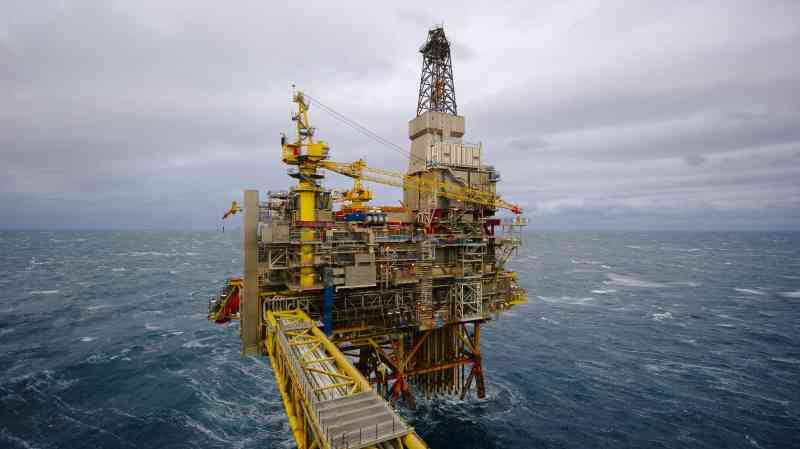The Commons’ business, energy and industrial strategy committee is by no means the first body to criticise Ofgem over the collapse of 29 energy suppliers during the past year. Its report into the failures, which are estimated to have cost at least £2.7 billion — or £94 for every household — still makes devastating reading for the regulator.
The MPs give the most brutal assessment yet of Ofgem’s weaknesses over the past decade, concluding that it has been “incompetent” and “negligent”. They also cast doubt on whether the regulator is on the right track even now — citing fears among some suppliers that it may be “making the same mistake all over again”.
Pursuit of competition Between 2010 and 2018, the number of energy suppliers in the market increased from only 12 to 70 as part of a deliberate political and regulatory strategy to encourage competition in an attempt to cut prices and improve customer service.
“The overriding priority for government and Ofgem was to diversify the market and challenge the dominance of the big incumbent suppliers,” the MPs say. New suppliers were encouraged with a “low bar” approach to licensing by Ofgem, which resulted in the “proliferation of smaller suppliers entering the market after 2010”.
Risky business models Companies with “glaringly inadequate financial arrangements and high-risk business models” were able to enter the energy market at minimal cost and to grow rapidly with little monitoring, the MPs say. Ofgem failed to check whether new suppliers “had access to sufficient capital, acceptable business plans, and were run by individuals with relevant expertise”.
Many companies relied on continually signing up new customers and using their credit balances to fund their day-to-day operations, and failed to hedge their energy purchases. This left the market “ill-equipped to absorb wholesale price increases”.
Warnings ignored Ofgem was “warned time and time again by the sector that it had made it far too easy for ill-equipped suppliers to be granted a licence”; Citizens Advice, the consumer group, raised concerns as early as 2013. The regulator also repeatedly “overlooked a series of red flags” and did not get round to reviewing entry rules until 2018, a delay that the MPs found “unacceptable and inexcusable”. Reforms to increase checks on existing suppliers were not implemented until 2021 and had “no meaningful impact”, and Ofgem “consistently and frequently failed to enforce its rules against suppliers in breach of their licence conditions”.
Costs of failureOver the past year, 29 suppliers have failed, which MPs say was “a direct consequence of both Ofgem’s fundamental failure to regulate the supplier market and enforce basic rules, and the unprecedented rise in wholesale gas prices”.
Of these, 28 have been dealt with via an Ofgem process to transfer their customers to solvent suppliers: this has resulted in costs being levied on all households at a likely cost of £94 each. “Ofgem’s negligence has contributed to higher energy bills,” the MPs say.
The biggest failure, Bulb, is being dealt with through a taxpayer-backed special administration process that is expected to cost at least £2 billion. “Ofgem has proved incompetent as the regulatory authority of this complex market, thereby costing taxpayers billions of pounds. The scale of failure and the cost exposure to taxpayers is only comparable to the financial crash of 2008,” MPs conclude.Holding to accountThe head of Ofgem from 2014 to 2020 was Dermot Nolan. The MPs say “if [he] was still in post, we would be calling for his dismissal”. His successor, Jonathan Brearley, told the committee that “changes are being made to the governance, leadership and performance of Ofgem”, but the MPs have ordered the regulator to report to it annually. They also want more accountability for directors of failed suppliers and suggest that misconduct proceedings should be brought against the former directors of Avro Energy, whose chief executive, Jake Brown, gave evidence to the committee. MPs say that Avro “improperly used customers’ money, including siphoning off customers’ cash to different businesses in the directors’ names, issuing loans to the directors, and paying poorly performing executives an unreasonably high salary”.
Overdue reforms, or same mistake again?Ofgem is now implementing a new set of rules for suppliers, designed to “address its previous shortfalls and boost suppliers’ financial resilience”. The MPs say they “support its vision for suppliers to be well capitalised and prudently run”, but are “concerned that if measures are poorly designed and executed, they will risk further destabilising the market and distorting competition”.
An Ofgem-commissioned independent report found that in the past it had failed to carry out quantitative impact analysis to support its decisions. MPs heard “worrying reports from some suppliers that Ofgem is making the same mistake all over again”. Particularly controversial is the regulator’s proposal to make suppliers ring-fence customer credit balances — a measure it had ruled out previously as not cost-effective. Some big suppliers, such as Centrica and Eon, are in favour, while Ovo and Octopus are vehemently opposed. The MPs have called for more robust analysis to be carried out.
Price cap rethinkWhile lax checks on suppliers are the main focus of the report, MPs also found that “the design of the energy price cap has contributed to recent instability in the supplier market”.
The price cap, introduced on government orders in 2019, caps standard and pre-payment tariffs. There are plans to legislate to enable it to remain in place beyond 2023, but MPs say that “neither the government nor Ofgem has evaluated its costs and benefits or considered alternative forms of price protection”.
They recommend that it consider introducing a “social tariff” for vulnerable customers, with a “relative” price cap for the rest of the market — capping the difference between suppliers’ cheapest and most expensive tariffs to prevent from them ripping off loyal customers, rather than placing an absolute maximum level on tariffs.
